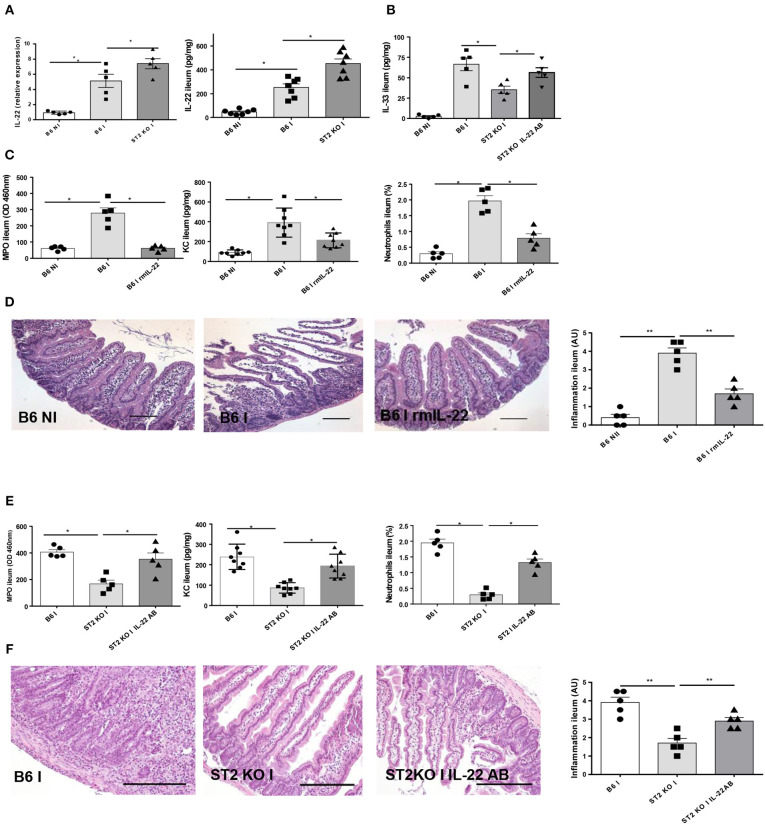In the published article, there was an error in affiliation 2. Instead of “UMR 7355 Université-CNRS INEM, Orléans, France and IDM, University of Cape Town, South Africa”, it should be “INEM UMR 7355 CNRS and University of Orleans, Orléans, France.”
In addition, the wrong microscopic plates were inserted into Figures 5E and F. The corrected Figure 5 appears below.
Figure 5.
IL-22 confers protection in IL-33R/ST2 deficient mice upon T. gondii infection Infection by T. gondii infection induces enhanced IL22 mRNA and protein expression in ST2 deficient mice (A,B) and increased IL-33 expression (B). Administration of rmIL-22 reduces MPO activity, CXCL1/KC levels, neutrophil recruitment (C) and severity of ileitis in B6 mice (D). By contrast, IL-22 antibody blockade in IL-33R/ST2 deficient mice increased MPO activity, CXCL1/KC levels and neutrophil recruitment (E) and enhanced severity of ileitis (F). Analysis at day 7 post-infection. Values are representative of two independent experiments.
The authors apologize for these errors and state that this does not change the scientific conclusions of the article in any way. The original article has been updated.



